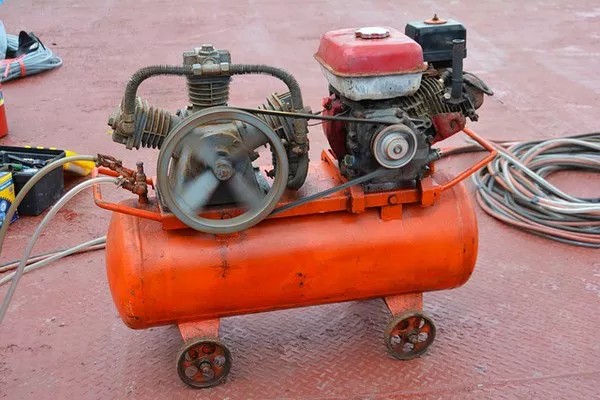In modern vehicles, air conditioning (AC) systems play a crucial role in passenger comfort, particularly in regions with extreme temperatures. At the heart of this system is the AC compressor, which circulates refrigerant through the system. One critical component of the compressor is the AC compressor clutch, a device that engages and disengages the compressor based on the vehicle’s cooling requirements. This article delves into the function, importance, and maintenance of the AC compressor clutch, helping to demystify its role in vehicle air conditioning systems.
What is the AC Compressor Clutch?
The AC compressor clutch is an electromagnetic component that connects and disconnects the AC compressor from the engine’s drive belt. This connection is essential for the operation of the compressor, which pressurizes and circulates refrigerant throughout the AC system. When engaged, the clutch allows the compressor to draw power from the engine, enabling it to perform its function of cooling the vehicle’s interior.
Components of the AC Compressor Clutch
The AC compressor clutch consists of several key components:
Electromagnetic Coil: This coil generates a magnetic field when electricity flows through it, attracting the clutch plate to engage the compressor.
Clutch Plate: This is the component that physically connects to the compressor shaft when engaged. It rotates with the engine’s drive belt, powering the compressor.
Pulley: The pulley is connected to the engine’s drive belt and allows for smooth rotation of the clutch plate.
Bearing: Bearings facilitate smooth operation and reduce friction, contributing to the longevity of the clutch mechanism.
How Does the AC Compressor Clutch Work?
The operation of the AC compressor clutch is relatively straightforward, yet critical to the AC system’s efficiency. Here’s how it works:
Activation: When the driver turns on the AC, a signal is sent to the AC system, prompting the clutch to engage. The electromagnetic coil is energized, creating a magnetic field.
Engagement: This magnetic field attracts the clutch plate to the compressor shaft, allowing the compressor to start compressing the refrigerant. The pulley continues to spin, providing power to the compressor.
Disengagement: When the desired cabin temperature is reached or when the AC is turned off, the electromagnetic coil is de-energized. The clutch plate disengages from the compressor shaft, effectively disconnecting the compressor from the engine drive belt.
Cycle Repeats: This engagement and disengagement cycle continues as needed to maintain the desired temperature inside the vehicle.
Importance of the AC Compressor Clutch
The AC compressor clutch is vital for several reasons:
Efficiency: By allowing the compressor to engage only when necessary, the clutch helps improve fuel efficiency. The engine does not waste power on the compressor when it is not needed.
Temperature Control: The clutch plays a direct role in regulating cabin temperature, providing comfort to passengers. An effective clutch ensures quick response to temperature adjustments.
System Longevity: Engaging and disengaging the compressor reduces wear and tear on the system. This can extend the lifespan of both the compressor and other related components.
Reduced Load on the Engine: When the AC is not engaged, the engine can operate more efficiently, reducing overall fuel consumption and emissions.
Common Issues with the AC Compressor Clutch
While the AC compressor clutch is designed for durability, it can experience several issues over time:
Electrical Failures: The electromagnetic coil can fail, preventing the clutch from engaging. This can result in an inoperative AC system.
Wear and Tear: Mechanical wear can lead to slipping of the clutch, causing inefficient operation or complete disengagement.
Fluid Leaks: Refrigerant leaks can result in low pressure within the system, causing the clutch to disengage prematurely.
Contamination: Dirt and debris can accumulate in the clutch mechanism, leading to binding or other operational issues.
Maintenance of the AC Compressor Clutch
To ensure the longevity and proper functioning of the AC compressor clutch, regular maintenance is essential. Here are some key maintenance tips:
Routine Inspections: Regularly inspect the AC system during vehicle maintenance. Look for signs of wear or damage, especially around the clutch area.
Refrigerant Levels: Maintain proper refrigerant levels. Low refrigerant can cause the system to operate inefficiently and may lead to clutch disengagement.
Electrical Connections: Ensure that the electrical connections to the clutch are clean and secure. Corroded or loose connections can lead to intermittent clutch operation.
Belt Condition: Inspect the drive belt for wear and proper tension. A worn or loose belt can affect the performance of the clutch and compressor.
Professional Servicing: If any issues are suspected, seek professional servicing. Technicians can perform detailed diagnostics to identify and rectify problems with the AC compressor clutch or the entire AC system.
See Also A Comprehensive Guide on Using Your Air Compressor Effectively
Conclusion
The AC compressor clutch is a small but vital component of vehicle air conditioning systems. By efficiently managing the operation of the compressor, it plays a key role in enhancing fuel efficiency, regulating cabin temperature, and ensuring the overall longevity of the AC system. Regular maintenance and timely attention to potential issues can keep the clutch—and the entire AC system—functioning optimally, providing a comfortable driving experience regardless of the weather outside. Understanding this crucial component not only helps drivers appreciate the intricacies of their vehicle’s systems but also empowers them to maintain their vehicles effectively for years to come.

